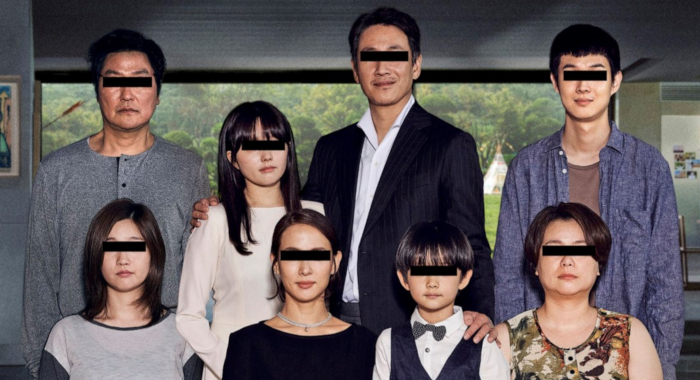The Irishman
by Hope Madden and George Wolf
In 1973, Martin Scorsese gave us Mean Streets, the tale of a fledgeling gangster contemplating the rungs that could lead him to the top of the NYC mafia. The film takes the point of view of the young man looking forward, and it boasts a supernaturally brilliant performance by Robert De Niro, then 30-years-old.
Scorsese’s latest, The Irishman, looks at a gangster’s rise through those same ranks, this time with the eyes of an old man looking back on his life. In another performance that will remind you of his prowess, a 76-year-old De Niro stars.
The 3 ½ hour running time opens patiently enough as Rodrigo Prieto’s camera winds its way through the halls of a nursing home, establishing a pattern. We will be meandering likewise through the life and memories of Frank Sheeran (De Niro), house painter.
“When I was young,” says Sheeran, “I thought house painters painted houses.”
Sheeran’s telling us his tale in much the way the actual Frank Sheeran told writer Charles Brandt (author of Scorsese’s source material) what may or may not have been the truth about his history as a mob hitman (it’s not paint he’s splashing across walls) and his relationship with Jimmy Hoffa (Al Pacino).
Teamed with acclaimed screenwriter Steven Zaillian (Schindler’s List, Moneyball, Gangs of New York), Scorsese’s sly delivery suggests that he’s interested in what might have happened to Hoffa, sure, but he’s more intrigued by memory, regret and revisionism in the cold glare of time. The result is sometimes surprisingly funny, with a wistful, lived-in humor that more than suits the film’s greying perspective.
De Niro’s longtime partnership with Scorsese makes it even easier to view Sheeran as an extension of the director himself, taking stock of his legacy in film.
The decades-spanning narrative could have easily made for a riveting Netflix series instead of one three and a half hour feature, but as the first act blends into the second, the film has you. The grip is subtle but it is more than firm, the epic storytelling and nuanced performances combining for an absorbing experience that takes your mind off the clock.
And what a joy to watch three powerhouses in the ring together.
Joe Pesci, playing against type as Russell Bufalino, the quiet mafia boss who mentors Sheeran, is as good as he’s ever been. Pacino fills Hoffa with an electric mix of dangerous bravado, unapologetic corruption and dogged sincerity. And De Niro, like that aging fighter reclaiming his title, gives The Irishman its deep, introspective soul.
And while the trio of legends is commanding the screen, Scorsese uses a small supporting role to remind us he can still speak softly and hit hard.
As Peggy Sheeran, the elder daughter who has watched her father evolve into the man he is, Anna Paquin is piercing, and almost entirely silent. When Peggy finally speaks, she asks her father a direct question that carries the weight of a lifetime behind it, and serves as the perfect conduit to drive the film to its aching conclusion.
Away from the chatter of Scorsese’s views on superhero movies or the proper role of Netflix, The Irishman stands as a testament to cinematic storytelling, and to how much power four old warhorses can still harness.















